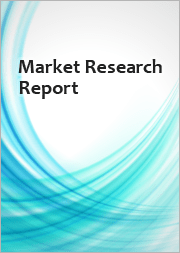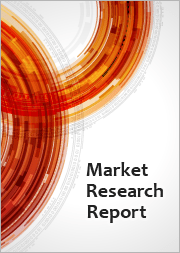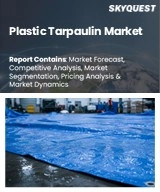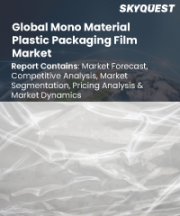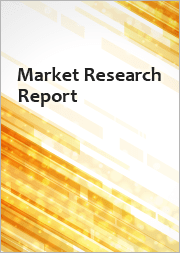
|
시장보고서
상품코드
1836401
플라스틱 포장 시장 예측(-2032년) : 폴리머 유형별, 포장 유형별, 제조 공정별, 판매 채널별, 용도별, 지역별 분석Plastic Packaging Market Forecasts to 2032 - Global Analysis By Polymer Type, Packaging Type, Manufacturing Process, Sales Channel, Application, and By Geography |
||||||
Stratistics MRC에 따르면 세계의 플라스틱 포장 시장은 2025년 4,131억 달러를 차지하고 예측 기간 동안 CAGR 4.4%로 성장해 2032년까지 5,584억 달러에 이를 것으로 예측됩니다.
플라스틱 포장은 식품, 음료, 의약품, 소비재와 같은 포장 용도에서 플라스틱 재료의 생산과 사용을 포함합니다. 이 시장을 견인하고 있는 것은 보존 기간을 연장하고 제품의 안전성을 확보하는 경량이며 내구성이 있고 비용 효율적인 포장 솔루션에 대한 수요 증가입니다. 재활용 가능, 생분해성, 고성능 플라스틱의 혁신이 성장을 형성하고 있습니다. 전자상거래 증가, 도시화, 편의성을 중시하는 소비자의 기호가 더욱 채용을 뒷받침하고 있습니다.
전자상거래 성장
전자상거래 분야의 폭발적인 확대는 플라스틱 포장 시장의 주요 촉진요인입니다. 온라인 소매는 운송 중 제품을 보호하기 위해 가볍고 내구성이 있으며 비용 효율적인 포장 솔루션에 크게 의존합니다. 플라스틱 소재, 특히 유연한 필름과 메일러는 강도 대 중량비가 우수하기 때문에 선호되며 운송 비용을 최소화할 수 있습니다. 게다가 소비자에게 직접 배송을 위해 안전하고 변조를 확인할 수 있어 시각에 호소하는 포장 수요는 급증하고 있으며, 물류와 브랜딩의 요구를 충족시키기 위해 다양한 플라스틱 포장 형식의 소비에 직접 박차를 가하고 있습니다.
재활용 과제
시장의 주요 억제요인은 효과적인 플라스틱 재활용의 복잡성이 뿌리 깊다는 것입니다. 다층 포장이나 연포장은 성능을 중시하지만, 종종 다른 유형의 폴리머로 구성되어 있기 때문에 분리가 곤란하고 경제적으로 성립되지 않고, 재활용의 흐름이 오염되어 버립니다. 이 비효율성으로 인해 소비자 사용 후 플라스틱 폐기물의 대부분이 매립지와 소각으로 돌려집니다. 또한 많은 지역에서 폐기물 관리 인프라가 부족하여 문제를 악화시키고 규제 당국의 모니터링을 강화하며 시장 성장의 큰 장벽이 되고 있습니다.
바이오플라스틱 개발
첨단 바이오플라스틱의 개발과 상업화는 큰 시장 기회를 제공합니다. 이러한 변화는 지속가능한 제품에 대한 소비자 수요 증가와 기존 플라스틱 폐기물을 대상으로 하는 정부의 엄격한 규제에 의해 추진되고 있습니다. PLA 및 PHA와 같은 바이오베이스 및 생분해성 폴리머의 혁신은 탄소 발자국을 줄이고 산업용 퇴비와 같은 사용된 옵션을 강화합니다. 게다가 지속적인 R&D는 이러한 재료의 성능과 비용 경쟁력을 향상시켜 브랜드가 패키징의 기능과 매력을 손상시키지 않고 지속가능성 목표를 달성할 수 있게 합니다.
원재료 가격 변동
시장은 주로 석유 및 천연가스에서 유래하는 원재료 가격의 변동이라는 일관된 위협에 직면하고 있습니다. 지정학적 긴장, 공급망 중단, 석유화학 공급업체의 생산 수준의 변동은 PET 및 폴리에틸렌과 같은 주요 중합체의 비용에 예측할 수 없는 큰 변동을 초래할 수 있습니다. 이러한 불안정한 상황은 패키징 컨버터의 이익률을 직접 압박하고, 컨버터는 이러한 갑작스러운 비용 상승을 고객에게 전가하는 데 어려움을 겪기 때문에 업계 전체에 있어서 재무적으로 불투명하고 장기 계획이 곤란한 환경을 만들어내고 있습니다.
COVID-19의 영향:
COVID-19의 유행은 플라스틱 포장 시장에 이중 영향을 미쳤습니다. 처음에는 세계 공급망과 원료를 얻는데 심각한 혼란을 일으켰습니다. 그러나 주요 최종 용도 분야 수요가 급증했습니다. 식품 및 음료, 특히 의약품 및 개인보호구(PPE)에 대한 요구가 증가함에 따라 위생적인 일회용 플라스틱 포장에 전례 없는 의존성이 생겼습니다. 이 시기, 플라스틱이 공공 위생을 지키는데 중요한 역할을 담당하고 있는 것이 부각되고, 플라스틱의 사용 금지가 일시적으로 철회되어, 필수 불가결한 용도에서의 소비가 급증했습니다.
예측기간 동안 폴리에틸렌 테레프탈레이트(PET) 분야가 최대가 될 것으로 예상
폴리에틸렌 테레프탈레이트(PET) 부문은 비교할 수 없는 다용도성과 우수한 특성으로 인해 예측 기간 동안 최대 시장 점유율을 차지할 것으로 예측됩니다. PET는 탁월한 투명성, 높은 강도, 습기 및 가스에 대한 강력한 장벽 특성으로 인해 음료 병, 식음료 용기 및 병 소재로 선택되었습니다. 게다가 다른 플라스틱에 비해 가볍고 재활용성이 높다는 특성은 경제적인 면뿐만 아니라 환경에 대한 배려의 고조에도 맞습니다. 병 식수와 즉석 음료에 대한 세계적인 수요의 지속은 포장 업계에서 열 성형 플라스틱의 주도적 지위를 흔들리지 않게 하고 있습니다.
예측 기간 동안 열 성형 분야의 CAGR이 가장 높을 것으로 예상
예측 기간 동안 열 성형 분야는 효율성과 다양한 분야에 대한 적응성으로 인해 가장 높은 성장률을 나타낼 것으로 예측됩니다. 이 과정은 식품, 의약품, 소비재용 블리스터 팩, 클램쉘, 트레이 등 광범위한 패키징 생산에 필수적입니다. 열 성형은 사출 성형에 비해 금형비가 저렴하고 생산 사이클이 빠르다는 등 큰 이점이 있습니다. 게다가, 열성형 용기에 크게 의존하는 포장된, 1회분씩 제공되는 즉석 식사의 소비 증가는 시장의 급속한 확대를 추진하는 중요한 요인입니다.
최대 점유율을 차지하는 지역:
예측 기간 동안 아시아태평양이 가장 큰 시장 점유율을 차지할 것으로 예측됩니다. 이 리더십은 엄청난 인구, 급속한 도시화, 급성장하는 전자상거래 부문의 강력한 조합에 의해 강화되고 있습니다. 중국과 인도와 같은 국가에서 중간층의 확대가 가처분 소득을 늘리고 패키지 상품, 가공식품, 식음료의 소비를 촉진하고 있습니다. 게다가 이 지역은 세계적인 제조 거점으로서의 지위를 확립하고 있기 때문에 산업용 및 소비자 제품용 패키징에 대한 대량의 국내 수요가 확보되고, 그 밖에 유례없는 수량 주도형 시장이 형성되고 있습니다.
CAGR이 가장 높은 지역:
예측 기간 동안 북미가 가장 높은 CAGR을 나타낼 것으로 예측됩니다. 이러한 가속 성장은 기술 혁신과 선진적이고 지속 가능한 패키징 솔루션의 개발에 중점을 두고 있다는 배경입니다. 이 시장 특징은 소비자의 의식이 높고 규제 기준이 엄격하기 때문에 재활용 소재와 바이오 플라스틱의 채용을 뒷받침하고 있습니다. 게다가 세련되고 성숙한 식음료 섹터와 고성능, 적합성이 높은 패키징을 요구하는 견조한 의약품 산업이 결합되어 차세대 플라스틱 포장 기술에 대한 투자와 채용이 지속적으로 추진되고 있습니다.
무료 주문을 받아서 만드는 서비스:
이 보고서를 구독하는 고객은 다음 무료 맞춤설정 옵션 중 하나를 사용할 수 있습니다.
- 기업 프로파일
- 추가 시장 기업의 종합적 프로파일링(3개사까지)
- 주요 기업의 SWOT 분석(3개사까지)
- 지역 세분화
- 고객의 관심에 응한 주요국 시장 추계, 예측 및 CAGR(주 : 타당성 확인에 따름)
- 경쟁 벤치마킹
- 제품 포트폴리오, 지리적 존재, 전략적 제휴에 기반한 주요 기업 벤치마킹
목차
제1장 주요 요약
제2장 서문
- 개요
- 이해관계자
- 조사 범위
- 조사 방법
- 데이터 마이닝
- 데이터 분석
- 데이터 검증
- 조사 접근
- 조사 자료
- 1차 조사 자료
- 2차 조사 정보원
- 전제조건
제3장 시장 동향 분석
- 성장 촉진요인
- 억제요인
- 기회
- 위협
- 용도 분석
- 신흥 시장
- COVID-19의 영향
제4장 Porter's Five Forces 분석
- 공급기업의 협상력
- 구매자의 협상력
- 대체품의 위협
- 신규 참가업체의 위협
- 경쟁 기업간 경쟁 관계
제5장 세계의 플라스틱 포장 시장 : 폴리머 유형별
- 폴리에틸렌 테레프탈레이트(PET)
- 폴리에틸렌(PE)
- 폴리프로필렌(PP)
- 폴리스티렌(PS) 및 발포 폴리스티렌(EPS)
- 폴리염화비닐(PVC)
- 바이오플라스틱
- 기타 폴리머 유형
제6장 세계의 플라스틱 포장 시장 : 포장 유형별
- 경질 플라스틱 포장
- 병 및 항아리
- 트레이 및 컨테이너
- 통 및 컵
- 캡 및 클로저
- 기타 경질 플라스틱 포장 유형
- 연질 플라스틱 포장
- 파우치 및 사쉐
- 가방 및 색
- 필름 및 랩
- 기타 연질 플라스틱 포장 유형
제7장 세계의 플라스틱 포장 시장 : 제조 공정별
- 사출 성형
- 취입 성형
- 압출
- 열 성형
- 기타 제조 공정
제8장 세계의 플라스틱 포장 시장 : 판매 채널별
- 브랜드 소유자에게 직접 판매
- 리셀러 및 도매업체
- 전자상거래 패키지 공급업체
제9장 세계의 플라스틱 포장 시장 : 용도별
- 음식
- 병 식수 및 탄산음료
- 유제품
- 스낵 및 과자류
- 고기, 닭고기, 해산물
- 과일 및 채소
- 기타 식품 및 음료
- 헬스케어 및 의약품
- 의약품 병
- 블리스터 팩
- 투약 튜브 및 바이알
- 의료기기 포장
- 퍼스널케어 및 화장품
- 가정용 및 공업용 화학약품
- 물류 및 공급망
- 전자기기 및 소비재
- 농업
- 자동차
- 기타 용도
제10장 세계의 플라스틱 포장 시장 : 지역별
- 북미
- 미국
- 캐나다
- 멕시코
- 유럽
- 독일
- 영국
- 이탈리아
- 프랑스
- 스페인
- 기타 유럽
- 아시아태평양
- 일본
- 중국
- 인도
- 호주
- 뉴질랜드
- 한국
- 기타 아시아태평양
- 남미
- 아르헨티나
- 브라질
- 칠레
- 기타 남미
- 중동 및 아프리카
- 사우디아라비아
- 아랍에미리트(UAE)
- 카타르
- 남아프리카
- 기타 중동 및 아프리카
제11장 주요 발전
- 계약, 파트너십, 협업, 합작투자
- 인수와 합병
- 신제품 발매
- 사업 확대
- 기타 주요 전략
제12장 기업 프로파일링
- Amcor PLC
- ALPLA-Werke Alwin Lehner GmbH & Co. KG
- Plastipak Packaging, Inc.
- Klockner Pentaplast Group
- Constantia Flexibles Group GmbH
- Sealed Air Corporation
- Sonoco Products Company
- Huhtamaki Oyj
- Mondi plc
- Printpack, Inc.
- Winpak Ltd.
- Coveris Holdings SA
- Greiner Packaging International GmbH
- AptarGroup, Inc.
- Nampak Ltd.
- Novolex Holdings, Inc.
According to Stratistics MRC, the Global Plastic Packaging Market is accounted for $413.1 billion in 2025 and is expected to reach $558.4 billion by 2032 growing at a CAGR of 4.4% during the forecast period. Plastic packaging involves the production and use of plastic materials for packaging applications across food, beverages, pharmaceuticals, and consumer goods. The market is driven by rising demand for lightweight, durable, and cost-effective packaging solutions that extend shelf life and ensure product safety. Innovations in recyclable, biodegradable, and high-performance plastics are shaping growth. Increasing e-commerce, urbanization, and convenience-driven consumer preferences further support adoption.
Market Dynamics:
Driver:
E-commerce Growth
The explosive expansion of the e-commerce sector is a primary driver for the plastic packaging market. Online retail relies heavily on lightweight, durable, and cost-effective packaging solutions to protect goods during transit. Plastic materials, particularly flexible films and mailers, are preferred for their superior strength-to-weight ratio, which minimizes shipping costs. Furthermore, the demand for secure, tamper-evident, and visually appealing packaging for direct-to-consumer delivery continues to surge, directly fueling the consumption of various plastic packaging formats to meet logistical and branding needs.
Restraint:
Recycling Challenges
A significant restraint for the market is the persistent complexity of effective plastic recycling. Multilayer and flexible packaging, while performance-driven, often consist of different polymer types that are difficult and economically unviable to separate, leading to contamination in recycling streams. This inefficiency results in a large portion of post-consumer plastic waste being directed to landfills or incineration. Moreover, inadequate waste management infrastructure in many regions exacerbates the problem, intensifying regulatory scrutiny and creating a substantial barrier to market growth.
Opportunity:
Bioplastics Development
The development and commercialization of advanced bioplastics present a substantial market opportunity. This shift is driven by escalating consumer demand for sustainable products and stringent governmental regulations targeting conventional plastic waste. Innovations in bio-based and biodegradable polymers, such as PLA and PHA, offer a reduced carbon footprint and enhanced end-of-life options like industrial composting. Additionally, continuous R&D is improving the performance and cost-competitiveness of these materials, allowing brands to meet sustainability targets without compromising on packaging functionality and appeal.
Threat:
Raw Material Price Volatility
The market faces a consistent threat from the volatility in raw material prices, primarily derived from crude oil and natural gas. Geopolitical tensions, supply chain disruptions, and fluctuating production levels by petrochemical suppliers can cause significant and unpredictable swings in the cost of key polymers like PET and polyethylene. This instability directly squeezes profit margins for packaging converters, who often struggle to pass these sudden cost increases onto their customers, thereby creating an environment of financial uncertainty and challenging long-term planning for the entire industry.
Covid-19 Impact:
The COVID-19 pandemic had a dual impact on the plastic packaging market. Initially, it caused severe disruptions in global supply chains and raw material availability. However, a surge in demand from key end-use sectors quickly followed. The heightened need for packaged food, beverages, and especially for pharmaceuticals and personal protective equipment (PPE) created an unprecedented reliance on hygienic, single-use plastic packaging. This period underscored plastic's critical role in safeguarding public health, leading to a temporary rollback of plastic bans and a spike in consumption for essential applications.
The polyethylene terephthalate (PET) segment is expected to be the largest during the forecast period
The polyethylene terephthalate (PET) segment is expected to account for the largest market share during the forecast period attributed to its unparalleled versatility and excellent properties. PET is the material of choice for beverage bottles, food containers, and jars due to its exceptional clarity, high strength, and strong barrier properties against moisture and gases. Furthermore, its lightweight nature and high recyclability compared to other plastics align with both economic and growing environmental considerations. The sustained global demand for bottled water and ready-to-drink beverages continues to solidify its leading position in the packaging landscape.
The thermoforming segment is expected to have the highest CAGR during the forecast period
Over the forecast period, the thermoforming segment is predicted to witness the highest growth rate driven by its efficiency and adaptability across diverse sectors. This process is crucial for producing a wide array of packaging, including blister packs, clamshells, and trays for food, pharmaceuticals, and consumer goods. Thermoforming offers significant advantages such as lower tooling costs and faster production cycles compared to injection molding. Moreover, the rising consumption of packaged, single-serve, and ready-to-eat meals, which rely heavily on thermoformed containers, is a key factor propelling its rapid market expansion.
Region with largest share:
During the forecast period, the Asia Pacific region is expected to hold the largest market share. This leadership is fueled by a powerful combination of a massive population, rapid urbanization, and a booming e-commerce sector. The expanding middle class in nations like China and India has increased disposable income, driving consumption of packaged goods, processed foods, and beverages. Additionally, the region's position as a global manufacturing hub ensures massive domestic demand for industrial and consumer product packaging, creating an unparalleled volume-driven market.
Region with highest CAGR:
Over the forecast period, the North America region is anticipated to exhibit the highest CAGR. This accelerated growth is propelled by a strong focus on technological innovation and the development of advanced, sustainable packaging solutions. The market is characterized by high consumer awareness and stringent regulatory standards, pushing for the adoption of recycled content and bio-based plastics. Moreover, a sophisticated and mature food & beverage sector, coupled with a robust pharmaceutical industry that demands high-performance, compliant packaging, continuously drives investment and adoption of next-generation plastic packaging technologies.
Key players in the market
Some of the key players in Plastic Packaging Market include Amcor PLC, ALPLA-Werke Alwin Lehner GmbH & Co. KG, Plastipak Packaging, Inc., Klockner Pentaplast Group, Constantia Flexibles Group GmbH, Sealed Air Corporation, Sonoco Products Company, Huhtamaki Oyj, Mondi plc, Printpack, Inc., Winpak Ltd., Coveris Holdings S.A., Greiner Packaging International GmbH, AptarGroup, Inc., Nampak Ltd., and Novolex Holdings, Inc.
Key Developments:
In September 2025, Sealed Air Corporation a global leader in protective packaging, is advancing its strategy as a one-stop shop for fulfillment operations with the launch of the AUTOBAG(R) 850HB Hybrid Bagging Machine.
In April 2025, Klockner Pentaplast's 100% kp Tray2Tray(R) solution won the 'Plastic Packaging Product of the Year' at the Plastics Recycling Awards Europe.
In April 2025, Sonoco Products Company ("Sonoco" or the "Company") a core mid-cap growth and value equity which is a global leader in high-value sustainable packaging announced it has completed the sale of its Thermoformed and Flexibles Packaging business ("TFP") to TOPPAN Holdings Inc. ("Toppan") for a purchase price of approximately $1.8 billion on a cash-free and debt-free basis and subject to customary adjustments (the "Transaction").
Polymer Types Covered:
- Polyethylene Terephthalate (PET)
- Polyethylene (PE)
- Polypropylene (PP)
- Polystyrene (PS) & Expanded Polystyrene (EPS)
- Polyvinyl Chloride (PVC)
- Bioplastics
- Other Polymer Types
Packaging Types Covered:
- Rigid Plastic Packaging
- Flexible Plastic Packaging
Manufacturing Processes Covered:
- Injection Molding
- Blow Molding
- Extrusion
- Thermoforming
- Other Manufacturing Process
Sales Channels Covered:
- Direct Sales to Brand Owners
- Distributors / Wholesalers
- E-commerce Packaging Suppliers
Applications Covered:
- Food & Beverage
- Healthcare & Pharmaceuticals
- Personal Care & Cosmetics
- Household & Industrial Chemicals
- Logistics & Supply Chain
- Electronics & Consumer Goods
- Agriculture
- Automotive
- Other Applications
Regions Covered:
- North America
- US
- Canada
- Mexico
- Europe
- Germany
- UK
- Italy
- France
- Spain
- Rest of Europe
- Asia Pacific
- Japan
- China
- India
- Australia
- New Zealand
- South Korea
- Rest of Asia Pacific
- South America
- Argentina
- Brazil
- Chile
- Rest of South America
- Middle East & Africa
- Saudi Arabia
- UAE
- Qatar
- South Africa
- Rest of Middle East & Africa
What our report offers:
- Market share assessments for the regional and country-level segments
- Strategic recommendations for the new entrants
- Covers Market data for the years 2024, 2025, 2026, 2028, and 2032
- Market Trends (Drivers, Constraints, Opportunities, Threats, Challenges, Investment Opportunities, and recommendations)
- Strategic recommendations in key business segments based on the market estimations
- Competitive landscaping mapping the key common trends
- Company profiling with detailed strategies, financials, and recent developments
- Supply chain trends mapping the latest technological advancements
Free Customization Offerings:
All the customers of this report will be entitled to receive one of the following free customization options:
- Company Profiling
- Comprehensive profiling of additional market players (up to 3)
- SWOT Analysis of key players (up to 3)
- Regional Segmentation
- Market estimations, Forecasts and CAGR of any prominent country as per the client's interest (Note: Depends on feasibility check)
- Competitive Benchmarking
- Benchmarking of key players based on product portfolio, geographical presence, and strategic alliances
Table of Contents
1 Executive Summary
2 Preface
- 2.1 Abstract
- 2.2 Stake Holders
- 2.3 Research Scope
- 2.4 Research Methodology
- 2.4.1 Data Mining
- 2.4.2 Data Analysis
- 2.4.3 Data Validation
- 2.4.4 Research Approach
- 2.5 Research Sources
- 2.5.1 Primary Research Sources
- 2.5.2 Secondary Research Sources
- 2.5.3 Assumptions
3 Market Trend Analysis
- 3.1 Introduction
- 3.2 Drivers
- 3.3 Restraints
- 3.4 Opportunities
- 3.5 Threats
- 3.6 Application Analysis
- 3.7 Emerging Markets
- 3.8 Impact of Covid-19
4 Porters Five Force Analysis
- 4.1 Bargaining power of suppliers
- 4.2 Bargaining power of buyers
- 4.3 Threat of substitutes
- 4.4 Threat of new entrants
- 4.5 Competitive rivalry
5 Global Plastic Packaging Market, By Polymer Type
- 5.1 Introduction
- 5.2 Polyethylene Terephthalate (PET)
- 5.3 Polyethylene (PE)
- 5.4 Polypropylene (PP)
- 5.5 Polystyrene (PS) & Expanded Polystyrene (EPS)
- 5.6 Polyvinyl Chloride (PVC)
- 5.7 Bioplastics
- 5.8 Other Polymer Types
6 Global Plastic Packaging Market, By Packaging Type
- 6.1 Introduction
- 6.2 Rigid Plastic Packaging
- 6.2.1 Bottles & Jars
- 6.2.2 Trays & Containers
- 6.2.3 Tubs & Cups
- 6.2.4 Caps & Closures
- 6.2.5 Other Rigid Plastic Packaging Types
- 6.3 Flexible Plastic Packaging
- 6.3.1 Pouches & Sachets
- 6.3.2 Bags & Sacks
- 6.3.3 Films & Wraps
- 6.3.4 Other Flexible Plastic Packaging Types
7 Global Plastic Packaging Market, By Manufacturing Process
- 7.1 Introduction
- 7.2 Injection Molding
- 7.3 Blow Molding
- 7.4 Extrusion
- 7.5 Thermoforming
- 7.6 Other Manufacturing Process
8 Global Plastic Packaging Market, By Sales Channel
- 8.1 Introduction
- 8.2 Direct Sales to Brand Owners
- 8.3 Distributors / Wholesalers
- 8.4 E-commerce Packaging Suppliers
9 Global Plastic Packaging Market, By Application
- 9.1 Introduction
- 9.2 Food & Beverage
- 9.2.1 Bottled Water & Carbonated Drinks
- 9.2.2 Dairy Products
- 9.2.3 Snacks & Confectionery
- 9.2.4 Meat, Poultry & Seafood
- 9.2.5 Fruits & Vegetables
- 9.2.6 Other Food & Beverages
- 9.3 Healthcare & Pharmaceuticals
- 9.3.1 Pharmaceutical Bottles
- 9.3.2 Blister Packs
- 9.3.3 Medication Tubes & Vials
- 9.3.4 Medical Device Packaging
- 9.4 Personal Care & Cosmetics
- 9.5 Household & Industrial Chemicals
- 9.6 Logistics & Supply Chain
- 9.7 Electronics & Consumer Goods
- 9.8 Agriculture
- 9.9 Automotive
- 9.10 Other Applications
10 Global Plastic Packaging Market, By Geography
- 10.1 Introduction
- 10.2 North America
- 10.2.1 US
- 10.2.2 Canada
- 10.2.3 Mexico
- 10.3 Europe
- 10.3.1 Germany
- 10.3.2 UK
- 10.3.3 Italy
- 10.3.4 France
- 10.3.5 Spain
- 10.3.6 Rest of Europe
- 10.4 Asia Pacific
- 10.4.1 Japan
- 10.4.2 China
- 10.4.3 India
- 10.4.4 Australia
- 10.4.5 New Zealand
- 10.4.6 South Korea
- 10.4.7 Rest of Asia Pacific
- 10.5 South America
- 10.5.1 Argentina
- 10.5.2 Brazil
- 10.5.3 Chile
- 10.5.4 Rest of South America
- 10.6 Middle East & Africa
- 10.6.1 Saudi Arabia
- 10.6.2 UAE
- 10.6.3 Qatar
- 10.6.4 South Africa
- 10.6.5 Rest of Middle East & Africa
11 Key Developments
- 11.1 Agreements, Partnerships, Collaborations and Joint Ventures
- 11.2 Acquisitions & Mergers
- 11.3 New Product Launch
- 11.4 Expansions
- 11.5 Other Key Strategies
12 Company Profiling
- 12.1 Amcor PLC
- 12.2 ALPLA-Werke Alwin Lehner GmbH & Co. KG
- 12.3 Plastipak Packaging, Inc.
- 12.4 Klockner Pentaplast Group
- 12.5 Constantia Flexibles Group GmbH
- 12.6 Sealed Air Corporation
- 12.7 Sonoco Products Company
- 12.8 Huhtamaki Oyj
- 12.9 Mondi plc
- 12.10 Printpack, Inc.
- 12.11 Winpak Ltd.
- 12.12 Coveris Holdings S.A.
- 12.13 Greiner Packaging International GmbH
- 12.14 AptarGroup, Inc.
- 12.15 Nampak Ltd.
- 12.16 Novolex Holdings, Inc.






